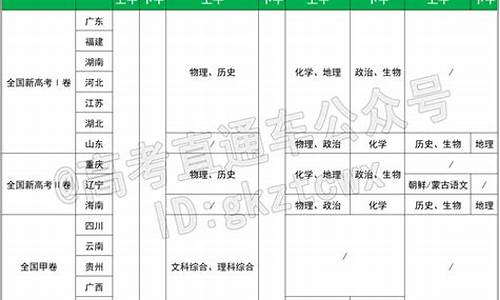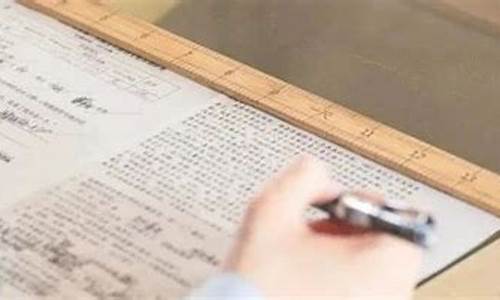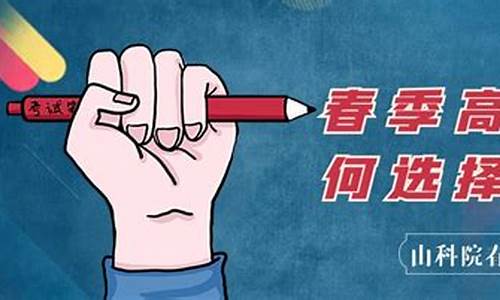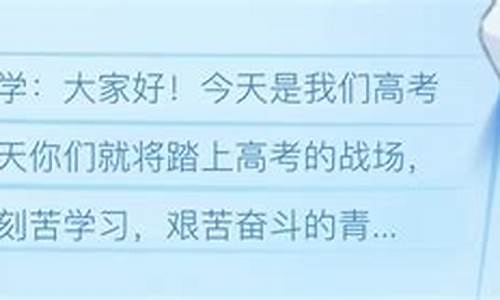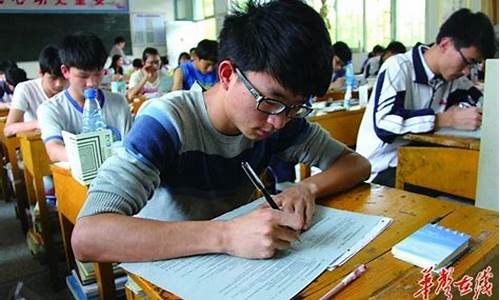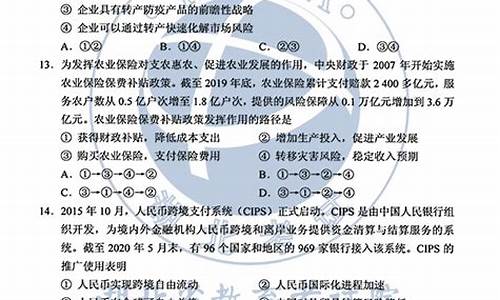您现在的位置是: 首页 > 教育政策 教育政策
辽宁省2017高考英语_2020年辽宁英语高考卷
tamoadmin 2024-06-26 人已围观
简介1.高考英语阅读理解训练2.2017年高考英语备考:关系代词副词的区别高考英语阅读大智慧:找到正确流程\x0d\:\x0d\ 在课堂内外常有学生问到一个问题:在高考阅读的解题中,到底应该先看题目还是先看文章。可以说,这是高考阅读教学中的经典问题之一。通常情况下,我的回答是“习惯是人生伟大的指南”。因为不管是什么样的解题顺序,首先你要养成一个正确的阅读习惯,在好的习惯的指引下,任何题型的文章你都可
1.高考英语阅读理解训练
2.2017年高考英语备考:关系代词副词的区别
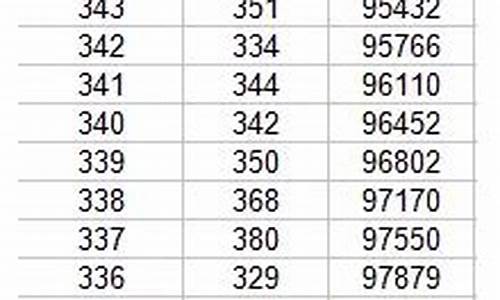
高考英语阅读大智慧:找到正确流程\x0d\:\x0d\ 在课堂内外常有学生问到一个问题:在高考阅读的解题中,到底应该先看题目还是先看文章。可以说,这是高考阅读教学中的经典问题之一。通常情况下,我的回答是“习惯是人生伟大的指南”。因为不管是什么样的解题顺序,首先你要养成一个正确的阅读习惯,在好的习惯的指引下,任何题型的文章你都可以融会贯通,点面俱到。\x0d\\x0d\ 通过长时间的高考阅读的研究和整理,我大体将目前学生的阅读流程分为三类:\x0d\\x0d\ 第一类:读文章——做题目——回头再读文章\x0d\\x0d\ 此为传统方法,命中率高,但速度稍慢。优点是能够迅速理解全文的主题脉络,连贯地进行信息的排查,缺点是由于人的记忆力有限,很多细节在做题时已经忘却,有不确定的地方仍需回到原文细细查找,寻找依据,耗时费力。这种方法的使用,需要较好的英文基础外加优秀的强记能力,一般使用于高分段的学生。\x0d\\x0d\ 不过,这种阅读流程的效果不单纯作用于考试,还可以切实提高英文阅读水平,对同学们大学以后的学习大有帮助。所以这种阅读顺序,我推荐给高一高二的学生在平时的阅读解题中大可以培养这种习惯,一方面确保准确率,第二稳步提升自己的英文阅读实力,但对于高三的同学,这种方法有些欠妥。由于复习时间的紧张,我们最好摒弃掉此类阅读习惯。\x0d\\x0d\ 第二类:读题目(题干+选项)—— 读文章 —— 做题目\x0d\\x0d\ 其实此类方法分两种,一种是只看题不看选项,即大致看看问题,然后带着问题再看文章;另一种是将题干和所有选择项看完,再看文章。第一种的优点是节约时间,缺点是由于不看选项,对于细节缺乏必要的把握,同样要返回文章找寻关键点,而且定位的时候没有精确的坐标;第二个就相对而言科学很多,优点是明了要重点注意的目标信息,有很好阅读的针对性,缺点是相对读文章的时间少了,难免断章取义缺少宏观的把握,容易陷入干扰选项设置的陷阱之中。\x0d\\x0d\ 对于高三的同学们,我还是建议多使用这种方法,方法虽有利弊,但对于时间紧张的你们,往往事半功倍。\x0d\\x0d\ 第三类:读主题——读题目—— 读全文——做题目\x0d\\x0d\ 个人认为这种方法较以上两种更为全面和严谨,而我在新东方的课堂的上也是建议给每位同学们练习这种方法,养成很好的阅读习惯。\x0d\\x0d\ 这种方法即先看懂各段首尾句或短文的第一段,大致明了文章的主题。此后细细地阅读题干推敲选项的大致设置,思考作者的行文规律和命题者的出题陷阱,然后带着已经在首尾句获得的信息和在题目中假设的思路回头进行有目的性的查找工作,准确率高且耗时相对较少。而我们现在的高考阅读文章均取自国内外的英文刊物,少有命题组自行行文的类型,此类文章逻辑严谨,结构清晰,所以气定神闲地先读完各段的首句再耐心的推敲考题选项的设置,往往会直接将四个选支排除掉一个或两个,这无疑对我们的解题帮助极大,减少了我们判断的压力轻松地将文章读完。\x0d\\x0d\ 高考阅读虽错综复杂,但是只要你养成很好的阅读习惯,加上一些必要的解题技巧是一定能征服它的。新东方流传一句话“得阅读者,得天下”,可见阅读是高考的重中之重,所以让我们一起努力吧,征服阅读,战胜高考。\x0d\\x0d\ 在课堂内外常有学生问到一个问题:在高考阅读的解题中,到底应该先看题目还是先看文章。可以说,这是高考阅读教学中的经典问题之一。通常情况下,我的回答是“习惯是人生伟大的指南”。因为不管是什么样的解题顺序,首先你要养成一个正确的阅读习惯,在好的习惯的指引下,任何题型的文章你都可以融会贯通,点面俱到。
高考英语阅读理解训练
一、频度副词在句中的通常位置
频度副词通常位于实意动词之前,动词be、助动词、情态动词之后。如:
He often comes to see us. 他常来看我们。
He is seldom late for school. 他上学很少迟到。
有时为了强调,频度副词也可位于动词be、助动词等之前。如:
She always was late. 她老是迟到。
有的频度副词可位于句末(尤其受very, only修饰时)。如:
I get paid on Fridays usually. 我通常在星期五领工资。
We go out very seldom. 我们很少外出。
Do you go to the cinema very often? 你常去看**吗?
有的频度副词(如sometimes, often, usually, frequently, occasionally等)可位于句首(此时多半是因为强调或对比)。如:
Sometimes he went there by bus. 有时他坐公共汽车去那儿。
Very often the phone rings when I’m in the bath. 电话经常在我洗澡时响。
注:含有否定意义的频度副词置于句首时,其后要用倒装语序。如:
Never have I been there. 我从未去过那儿。
Seldom does he see a film. 他很少看**。
另外,频度副词always 和 never通常不位于句首,除非是祈使句:
Always remember this. 时刻记住这一点。
Never go out at night. 晚上千万不要出去。
2017年高考英语备考:关系代词副词的区别
高考英语阅读理解精品训练2017
近几年高考英语阅读主要有猜测词义、理解主旨大意、推理判断、对文章的细节理解、 数据推算等几种题型。为了帮助大家备考高考英语阅读理解题,我分享了一些高考英语阅读理解练习,希望能对大家有所帮助!
阅读理解练习1
Not many years ago, a wealthy and rather strange old man named Johnson lived alone in a village in the south of England. He had made a lot of money in trading with foreign countries. When he was seventy?five, he gave ? 12,000 to the village school to buy land and equipment (设备) for a children?s playground.
As a result of his kindness, many people came to visit him. Among them was a newspaperman. During their talk, Johnson remarked that he was seventy-five and expected to live to be a hundred. The newspaperman asked him how he managed to be healthy at seventy?five. Johnson had a sense of humour (幽默). He liked whisky (威士忌酒) and drank some each day. ?I have an injection (注射) in my neck each evening.?he told the newspaperman, thinking of his evening glass of whisky.
The newspaperman did not understand what Johnson meant. In his newspaper he reported that Johnson was seventy?five and had a daily injection in his neck. Within a week Johnson received thousands of letters from all over Britain, asking him for the secret of his daily injection.
1. Johnson became a rich man through
A. doing business. B. making whisky. C. cheating. D. buying and selling land.
2. The gift of money to the school suggests that Johnson
A. had no children. B. was a strange man.
C. was very fond of children. D. wanted people to know how rich he was.
3. Many people wrote to Johnson to find out
A. what kind of whisky he had. B. how to live longer.
C. how to become wealthy. D. in which part of the neck to have an injection.
4. The newspaperman
A. should have reported what Johnson had told him.
B. shouldn?t have asked Johnson what injection he had.
C. was eager to live a long life.
D. should have found out what Johnson really meant.
5. When Johnson said he had an injection in his neck each evening, he really meant that
A. he liked drinking a glass of whisky in the evening.
B. he needed an injection in the neck.
C. a daily injection in the evening would make him sleep well.
D. there was something wrong with his neck.
阅读理解练习2?I?m very tired from working here,?said Jean to her friend Kate,? I?m on my feet from morning to night. For the first quarter of the day, I clean up the counter (柜台) and set the tables. For the next quarter, I help in the kitchen. For the second half of my workday, I take orders at the counters.?
?Kate, I wish I had your job,?Jean went on. ?For four hours you just sit at the cash register (收款台) taking in money.?
?But I spend two more hours in the kitchen (厨房) than you do,?said Kate. ?It?s tiring to cook over a hot stove. I don?t think you?d really want my job. In fact, I?d like your job.?
1. Both Jean and Kate probably work in a
A. hotel B. library C. lab D. shop
2. How long did they work every day?
A. eight hours B. twelve hours. C. Ten hours D. Nine hours
3. How long did Kate spend in the kitchen?
A. a quarter day. B. A half day. C. One-third day. D. Three-fourths day.
4. From this passage we can see that
A. they are both interested in their work. B. their work is neither tiring nor busy.
C. both of them are tired of their work. D. they?ve decided to give up their work.
5. Give a proper proverb (谚语) to Jean and Kate.
A. It?s never too late to learn.
B. It?s no use crying over spilt milk.
C. The grass is always greener on the other side.
D. One swallow(燕子) does not make a summer.
阅读理解练习3In 1985 a French television company sent its reporters to the Paris Metro. They took cameras to see what passengers would do if they saw someone attached on the platform or in the trains. They acted out incidents. The incidents looked real but they were all done with the help of actors. However, very few people tried to help, and most passengers pretended not to notice. in one incident, a foreigner was attacked by three men. The attack was on a train which was quite full, and although one man tried to get the passengers to help, they all refused. It seems that such behaviour(行为) is not unusual, but the question is why? Is it a problem of big cities, or would the same thing happen anywhere? To discuss these questions, we have in the studio(演播室) Professor Wilson, who is an expert on the subject?
1. Who did the experiment?
A. A French television company. B. The Paris Metro.
C. The City Government of Paris. D. Professor Wilson.
2. What did the experiment try to find out?
A. How a foreigner was attacked on the train.
B. How passengers helped each other on the platform.
C. Passengers? reactions towards incidents.
D. Actors? performances during incidents.
3. What was the finding of the experiment?
A. Passengers helped a lot during incidents.
B. Very few foreigners were on the train.
C. Very few passengers tried to help during incidents.
D. Some people were good at acting on the train.
4. Who do the underlined words one man refer to?
A. One of the three men who attacked a foreigner.
B. One of the actors who took part in the experiment.
C. One of the passengers who were on the train.
D. One of the reporters who were sent to the Paris Metro.
参考答案:
1A 2 C 3 D 4 D 5 A
1A 2 A 3 B 4 C 5 C
1D 2 C 3 C 4 B
;一、 关系代词和关系副词的区别
1、关系代词(that, who, whom, whose, which)所代替的先行词是人或物的名词或代词,并在句中充当主语、宾语、定语等成分。
例1. Is he the man who/that wants to see you?(who / that在从句中作主语,指人)
例2. He is the man whom/ that I saw yesterday.(whom / that在从句中作宾语,指人)
例3. They rushed over to help the man whose car had broken down.(whose在句中作定语,指人)
例4. Please pass me the book whose (of which) cover is green.(whose在句中作定语,指物。若指物,它还可以同of which互换)
例5. The package (which / that) you are carrying is about to come unwrapped. 你拿的包快散了。(which / that在句中作carry的宾语,指物)
2、关系副词(when, where, why, that)可代替的先行词是时间、地点或理由的名词,在从句中作状语。关系副词when, where, why的含义相当于"介词+ which"结构,因此常常和"介词+ which"结构交替使用。
例6. Beijing is the place where (in which) I was born.
例7. Is this the reason why (for which) he refused our offer?
例8. His father died the year (that / when / in which) he was born.
例9. He can’t find the place (that / where / in which) he lived forty years ago.
二、 判断用关系代词和关系副词
方法1: 用关系代词,还是关系副词完全取决于从句中的谓语动词。及物动词后面无宾语,就必须要求用关系代词;而不及物动词则要求用关系副词。请改错:
1. This is the mountain village where I visited last year.
2. I will never forget the days when I spent in the countryside.
习惯上总把表地点或时间的名词与关系副词 where, when联系在一起。此两题错在关系词的误用上。句1和句2的where, when都应改为which.。
方法2: 准确判断先行词在定语从句中的成分(主、谓、宾、定、状),根据第一点(区别),也能正确选择出关系代词/关系副词。
例10.This museum is ___ you visited a few days age?
A. where B. that C. on which D. the one
例11. This is the museum ____ the exhibition was held.
A. where B. that C. on which D. the one (答案:例1 D,例2 A)
在例10中,所缺部分为宾语,而where, that, on which都不能起到宾语的作用,只有the one既做了主句的表语,又可做从句的宾语,可以省略关系代词,所以应选D。
而例11中, 主、谓、宾俱全,从句部分为句子的状语表地点,既可用副词where,又因 in the museum词组,可用介词in + which 引导地点状语。而此题中,介词on 用的不对,所以选A。
关系词的选择依据在从句中所做的成分,先行词在从句中做主、定、宾语时,选择关系代词 (who, whom, that, which, whose); 先行词在从句中做状语时,应选择关系副词 ( where 地点状语,when 时间状语,why 原因状语)。
方法3:当先行词是all, everything, anything, nothing,the one, much, few, any, little等,或先行词是形容词级时,或在there be 句型中,或当先行行词既有人又有物时,关系代词用that, 而不用which。
例12. Finally, the thief handed everything that he had stolen to the police.
例13. The soldiers and their guns that we sent to the front were lost.
方法4:在引导非限定性定语从句时,和在介词后不能用that,应用which。
例14.(错) The tree, that (改为which)is four hundred years old, is very famous here.
例15.We depend on the land from which we get our food.

